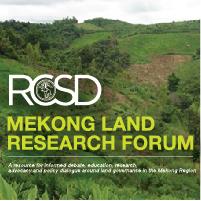Resource information
This paper explores the political processes that activists engaged in contesting land grabbing have triggered to connect claims across borders and to international institutions, regimes and processes. Through a review of cases of land-grab resistance that have led to project cancelation or suspension, I argue that contextual elements of the land grab and shifting geopolitics highlight the need for adaptation and refinement of models of transnational advocacy, historically structured in North–South patterns. For example, while some elements of the boomerang pattern of transnational advocacy are still relevant, changing realities call for new empirically enriched models. To this end, I outline two typologies of political contention that can help us conceptualize multi-scalar interactions between activists to demonstrate the impact of local resistances at larger scales – ‘the catapult effect’ and the ‘minefield effect’. This paper contributes to calls for further theorization to understand how feedback processes between international discourses, meso-politics and conflicts and resistance at local sites of production impact the implementation of contested land deals.



